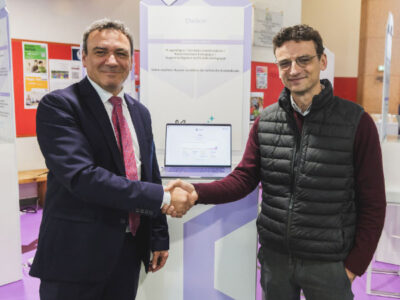Dana-Farber Cancer Institute has agreed to pay $15 million to the U.S. government in a settlement to resolve allegations that, between 2014 and 2024, Dana-Farber violated the False Claims Act by “using fraudulent images in grant applications and research articles to induce the NIH to pay millions of dollars to support research at Dana-Farber.”
Curebound has announced eight grants for a total of $2 million in funding. The funding is made available through two new Curebound programs: Catalyst Grants, which support projects within early-stage life science companies that are seeking to take innovative discoveries to commercially approved products, and Equity Grants, which focus on overcoming disparities in cancer research and treatment in underserved populations.
Paradigm Health and Flatiron Health announced that Paradigm Health will acquire Flatiron’s Clinical Research Business, which has built a tech-enabled U.S. oncology research network.
Substantial delays are taking place across the cancer care pathway in Nepal, with many patients waiting months between first symptoms and treatment, according to an article by the International Agency for Research on Cancer and partners.
Xavier Apolinarski (left), vice president of innovation at Université Paris-Saclay, and Eric Durand (right), chief research and technology officer at Owkin at the signing of the deal between Université Paris-Saclay and Owkin.Université Paris-Saclay and Owkin announce the signing of a memorandum of understanding to explore the potential of K Pro Free—Owkin’s AI co-pilot for biology—for use by Université Paris-Saclay.
ChristianaCare’s Cawley Center for Translational Cancer Research has established an organoid core.
The governing board of the Cancer Prevention and Research Institute of Texas met in Austin on Nov. 19 and approved 73 grants totaling almost $154 million.
GSK and LTZ Therapeutics, an immunotherapy-focused biotechnology company based in Redwood City, CA, will collaborate to advance the development of novel myeloid cell engagers.
The landscape of cancer treatment is rapidly evolving. Increasingly, there is recognition that care must go beyond treating the disease itself—it must also address the whole person and the debilitating symptoms patients experience during and after treatment.
This year marks the Neuroendocrine Tumor Research Foundation’s 20th anniversary. Established as the Caring for Carcinoid Foundation by Nancy Lindholm in 2005, NETRF has served as one of the few funding sources for neuroendocrine cancers since its inception.









